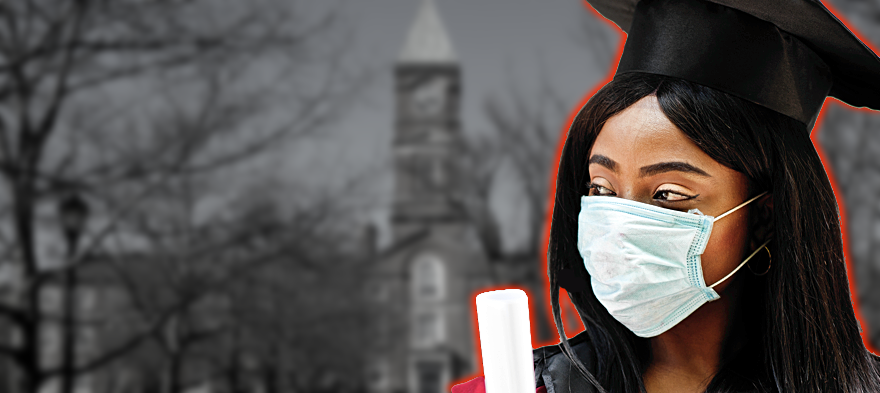
May 12, 2021 12:00:00 AM
by Lina Bankert
Once a happy inflection point for many young people, high school graduation—and what comes next—is now chaotic. COVID-19 has dramatically raised the barriers to accessing and persisting in college, especially for first-generation students.
At Bellwether Education Partners, our team set out to understand COVID-19’s impact on students’ postsecondary choices and how institutions can respond and support students. [pullquote]We spoke with dozens of young people and the adults in their lives, and what we heard will require the many institutions, including K-12 schools, colleges and universities, to better understand the needs of young people and evolve their programming.[/pullquote]
Take Anna, a high school senior in Mississippi. Pre-pandemic, Anna was set on attending college to improve her career prospects, though she remained uncertain of her end goal—teaching or nursing. COVID-19 complicated that question, especially as Anna saw her mother, a nurse, contract the virus and take emergency sick leave, putting Anna in charge of household responsibilities. Anna is also uncertain whether she can afford college without significant financial support. COVID-19 has only intensified the challenge of getting information about college programs and evaluating her options, since support has moved online.
Students across the country are facing similar and urgent hurdles. Students’ hopes remain intact, and many want to go to college. They also want to make their families proud. At the same time, students feel torn and often need to contribute meaningfully to their households, by most immediately working, taking care of siblings, or supporting relatives.
This differs from what students grow up understanding about college: that attending university is a practical way to enter the workforce. But how to get there—what school to attend, what area to study, and how to pay for it—inhibits students’ ability to pursue college. Here’s Anna again:
Because of COVID-19, resources have been taken away, and I don’t feel like I’ll have time to figure things out on my own. Maybe if I don’t have a set plan, I’ll take a gap year and make money, and then go back in.
But research shows that seemingly common sense step is fraught. [pullquote]Students who delay college are 64% less likely to graduate and 18% less likely to earn a college credential.[/pullquote] Students who do return to complete their degree tend to choose part-time options and earn less in the long run than peers who enroll immediately, depending on the length of the delay.
Schools and counselors have tools at their disposal to support students like Anna, helping them navigate seemingly impossible choices. Longer-term, system-level shifts are needed, but there are actions schools can take right now to help graduating high school seniors.
Young people have big hopes and dreams. They want to pursue college and be successful in life. While the global pandemic has pushed too many students off course, the adults in students’ lives can step in with empathy and wisdom and guide students.
That's the case for Anna, who, with guidance from a counselor, refocused on matriculating to her top-choice university on a pre-med track. The next few months will be critical for her to follow through—and for the adults in her support network to encourage her.
Lina Bankert is a partner at Bellwether Education Partners, a national education non-profit, and co-author of Reimagining the Road to Graduation.
The story you tell yourself about your own math ability tends to become true. This isn’t some Oprah aphorism about attracting what you want from the universe. Well, I guess it kind of is, but...
If you have a child with disabilities, you’re not alone: According to the latest data, over 7 million American schoolchildren — 14% of all students ages 3-21 — are classified as eligible for special...
The fight for educational equity has never been just about schools. The real North Star for this work is providing opportunities for each child to thrive into adulthood. This means that our advocacy...
Your donations support the voices who challenge decision makers to provide the learning opportunities all children need to thrive.
Ed Post is the flagship website platform of brightbeam, a 501(c3) network of education activists and influencers demanding a better education and a brighter future for every child.
© 2020–2024 brightbeam. All rights reserved.
Leave a Comment